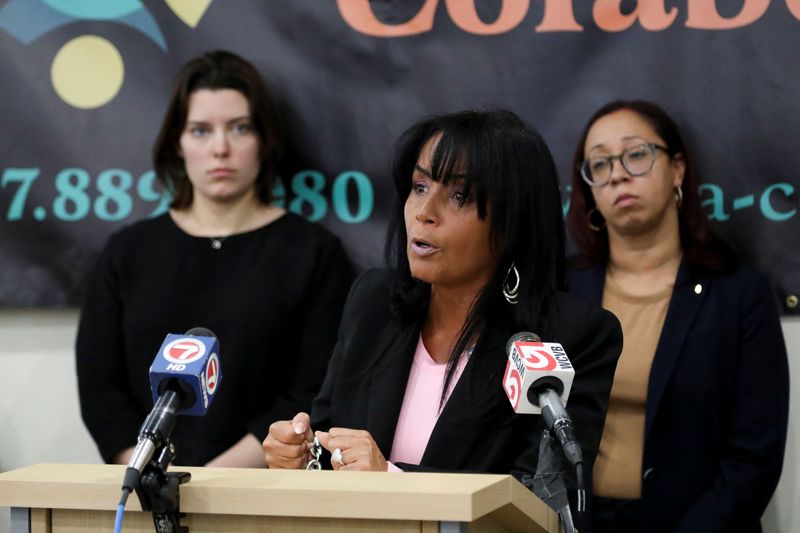By Nate Raymonde (NSE:)
BOSTON (Reuters) – Democratic-led states and civil rights groups filed a series of lawsuits on Tuesday against U.S. President Donald Trump’s proposal to take away the citizen’s birthright, in an attempt early by his opponents to block his program in court.
After his inauguration Monday, Republican Trump ordered U.S. agencies to refuse to recognize the citizenship of children born in the United States if neither their mother nor father is a U.S. citizen or legal permanent resident.
Twenty-two Democratic-led states, along with the District of Columbia and the city of San Francisco, filed two lawsuits in federal courts in Boston and Seattle, claiming Trump violated the U.S. Constitution.
Two similar complaints were filed by the American Civil Liberties Union, immigrant organizations and a pregnant woman in the hours after Trump signed the executive order, kicking off the first major legal battle of his administration.
The lawsuits target a central part of Trump’s sweeping immigration crackdown. If upheld, Trump’s order would deprive more than 150,000 children born each year in the United States of the right to citizenship for the first time, Massachusetts Attorney General Andrea Joy Campbell’s office said.
“President Trump does not have the authority to take away constitutional rights,” she said in a statement.
Losing their citizenship would prevent these people from accessing federal programs like Medicaid health insurance and, when they age, from legally working or voting, the states say.
“Today’s immediate trial sends a clear message to the Trump administration that we will defend our residents and their fundamental constitutional rights,” New Jersey Attorney General Matthew Platkin said in a statement.
The White House did not respond to a request for comment.
More lawsuits are expected from Democratic-led states and advocacy groups challenging other aspects of Trump’s agenda, with cases already filed challenging the Elon Musk-led Department of Government Efficiency and an order signed by Trump weakening job protection for public employees.
1898 PREVIOUS IN THE UNITED STATES SUPREME COURT
Three of the four lawsuits were filed in Massachusetts and New Hampshire. All decisions by judges in these New England states would be reviewed by the Boston-based U.S. First Court of Appeals, the only federal appeals court whose active judges are all Democratic appointees.
Four states filed a separate lawsuit in Washington state, over which the 9th U.S. Circuit Court of Appeals, based in San Francisco, has jurisdiction. That court often thwarted Trump’s first-term agenda, even as its ideological makeup shifted to the right thanks to the judicial appointments he made.
The lawsuits argue that Trump’s executive order violated the right enshrined in the Citizenship Clause of the 14th Amendment of the U.S. Constitution, which provides that anyone born in the United States is considered a citizen.
The complaints cite the United States Supreme Court’s 1898 decision in United States v. Wong Kim Ark, a ruling that children born in the United States to non-citizen parents are entitled to American citizenship.
The plaintiffs challenging the order include a woman living in Massachusetts identified only as “O. Doe” who is in the country under temporary protected status and is due to give birth in March.
Temporary protected status is available to people whose home countries have experienced natural disasters, armed conflicts or other extraordinary events and currently covers more than 1 million people from 17 countries.

Several other lawsuits challenging aspects of Trump’s other early executive actions are pending.
The National Treasury Employees Union, which represents federal government employees in 37 agencies and departments, filed a lawsuit late Monday challenging an order signed by Trump that makes it easier to fire thousands of federal agency employees and replace them with political loyalists.

